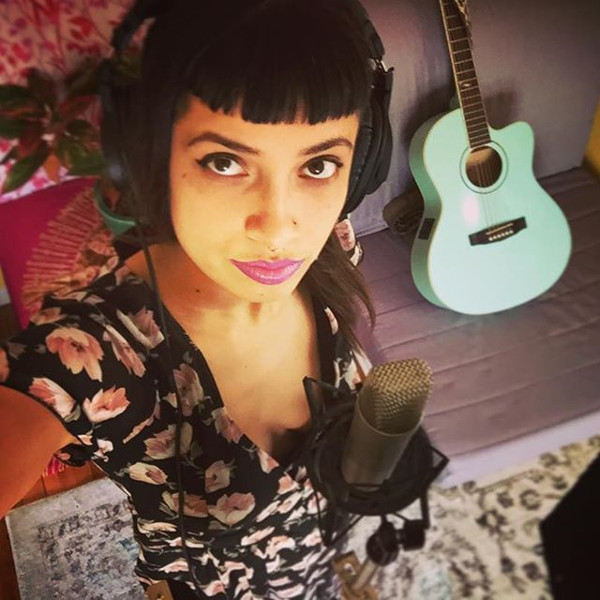
Editor’s note: Multi-instrumentalist songwriter Alysha Brilla’s new album, Human, has the power of a unifying manifesto. Inspired by singers Selena Perez, Amy Winehouse and Bob Marley, Brilla’s vocals are, at once, fun, soulful and exciting. The music she makes is every bit as remarkable as that mix. A Canadian of Tanzanian and Indian heritage, Brilla weaves a tapestry of sounds from every reach of the African diaspora. With eclectic hip hop-flavored mixes, R&B and jazz horns vamp off Indian tabla over reggae and African rhythms, creating a sound both inviting and invigorating. Thematically, Human climbs the walls people try to build between one another (“Bigger than That”), dreams of a future founded on love (“No More Violence”) and embraces the process of change before us (“Change the World”).
In an interview with the People’s Tribune’s Danny Alexander, Brilla explains her vision, a brilliant counterpoint to that of our corporately-run government and media.
PT: When I first heard you sing “Bigger Than That,” I was in awe of how you could say so much so playfully. How do you remember music shaping your perspective as a child?
Brilla: Music was a huge life source for me as a child. I was always the odd one in my family and in general, so music became a language with which I could translate my thoughts and feelings, and one that people would respond to positively. My mom sang to me, making up lyrics, and my father played guitar on occasion. I was completely fascinated.
PT: How would you describe your approach?
Brilla: Growing up near Toronto, in a mixed household, I heard a lot of different music. I have always loved rhythm. Good rhythm. Good melody. Good lyrics. A song doesn’t need to be complicated. My love for pop music is that it embraces simplicity, as does most folk music around the world. It’s music for people to sing along to, and gather. It connects us to ourselves, each other and a greater unifying force.
PT: What is the story behind your decision to write “Human,” a song about being one of 7 billion others?
Brilla: I like the idea of objectivity. I like the idea of humans having a capacity to zoom out, over ourselves, and look from a bird’s eye view. To look at where we fit in our families, societies and in the world. I think there is nothing more important at this time in history than understanding ourselves and each other. It’s our only hope.
PT: You seem to be a part of a strong, nurturing community of musicians. How did that community and/or that approach develop?
Brilla: I was welcomed by different communities, especially in K-W (Kitchener-Waterloo, Ontario). I have a friend and artist named Janice Lee [a wonderful musician herself] whose love for community always inspires me. Without community we feel empty.
PT: If you could change the world, what do you imagine that world might look like?
Brilla: It would look balanced because humanity would collectively be doing the work to ensure that voices formerly silenced now have a platform to express and teach us.It would be a lot greener, too. Borders wouldn’t be so strict because nationalism would be a dated value.
Alysha Brilla’s new album envisions a future founded on love
Latest
Free to republish but please credit the People's Tribune. Visit us at www.peoplestribune.org, email peoplestribune@gmail.com
The People’s Tribune brings you articles written by individuals or organizations, along with our own reporting. Bylined articles reflect the views of the authors. Unsigned articles reflect the views of the editorial board. Please credit the source when sharing: ©2024 peoplestribune.org. Please donate to help us keep bringing you voices of the movement. Click here. We’re all volunteer, no paid staff.

